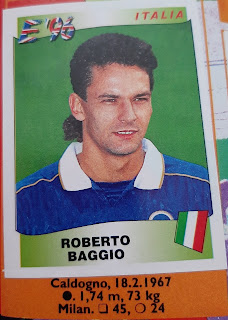432x: Daniel Güiza, España, Panini UEFA Euro 2008 Austria-Switzerland Official Sticker Album Update Stickers
The Euro 2024 knockout stages are upon us and we’ve been served a veritable feast of football so far in Germany. Scotland once again suffered a group stage exit while Austria topped a tricky group after securing a famous win over the Netherlands to prove that maybe Ralf Rangnick wasn’t the problem at Manchester United after all. The last remnants of Belgium’s ‘Golden Generation’ snuck through Group E while debutants Georgia pulled off the shock of the group stage with a 2-0 win over Portugal which Cristiano Ronaldo was absolutely fine with. Gareth Southgate’s England, meanwhile, have taken a unique approach to winning a group by boring their opponents, travelling fans and supporters at home into such a vegetative state that it makes you wonder if they are taking the game to strange new places rather than bringing it home.
Football had no chance of coming home in 2008 as, due to a certain “wally with a brolly”, the Three Lions were not even heading on the plane to Austria and Switzerland for the European Championship. The absence of the supposed ‘Golden Generation’ in many ways made the tournament more enjoyable although the fact it coincided with the end of my second year exams might have had something to do with that too. Long afternoons were spent playing headers and volleys at Belmont Park before evenings watching Europe’s finest battle it out. In the group stages the Netherlands decimated Italy, France and Romania while Croatia also advanced with a perfect record. Portugal and Turkey snuck out of their group thanks to key wins over the Czech Republic while Spain finally looked to have cracked the code of a major international tournament to advance thanks to a convincing win over Russia and late winners against Sweden and reigning champions Greece. While the more familiar names of David Villa and Fernando Torres provided the goals in the first two games it was a hitherto unknown who secured the points against Greece and, as a result, became a cult hero for a group of Exeter undergraduates.
Before I delve into the story of Daniel González Güiza it’s important to consider that none of us were studying Spanish and therefore decided his surname was pronounced “geezer”. This word, and the attached adjective “geeze”, made up approximately 80% of our conversations (and still does). One of our number, Tom, even formed a professional wrestling tag team ‘The Gzrs’ who can further explain what it means to be “geeze” here. Thankfully Güiza more than lived up to his name. Although he missed a penalty against Italy in the quarter-finals he was back on the scoresheet against Russia in the semis and came off the bench in the final to secure his nation’s first major trophy since 1964. Victory in Euro 2008 set La Roja on the path to international dominance as they won the 2010 World Cup before retaining their European title in 2012. By this stage Spain were not relying on such things as strikers instead packing their team with 47 midfielders and passing teams into submission but Güiza and the class of 2008 set the ball in motion.
Dani Güiza had forced his way into contention for the national team despite a tricky start to his footballing career. In his youth he would hide behind trees at the training ground to avoid cardiovascular sessions but his eye for goal saw him picked up by Xerez before moving to Mallorca and Getafe. His love of the Madrid nightlife led to a stomach infection and threatened to derail his career but the influence of his partner, model and football agent Nuria Bermudez, calmed him down with manager Bernd Schuster remarking that “ever since Dani's been with Nuria, he turns up to training and it doesn't look like he's slept under a bridge”. Impressive performances for Getafe saw him return to Mallorca ahead of the 2007/08 season where he scored 27 goals in La Liga to finish as top scorer. This form earned him a place on the plane to Austria and Switzerland and the rest, as they say, is history.
Following the tournament Güiza moved to Fenerbahce. He managed 35 goals during three seasons in Turkey and helped his side to two Turkish Cup finals before returning to Getafe in 2011. Amidst a background of tabloid turmoil the goals dried up somewhat and he moved on loan to Malaysian side Johor Darul Ta’zim in 2013 before heading to Paraguay with Cerro Porteno. After returning to his hometown of Cadiz in 2015 he worked his way down the Spanish league pyramid and turned out for Algaida in the sixth tier twenty times in the season just gone. For a striker described by Getafe’s club president Angel Torres as “the best finisher in the top division after Ronaldo” such career longevity, and clear commitment to the game, is particularly impressive.
Major international tournaments have always springboarded players into the public consciousness and never more so than when their goals launch their nations on to great things. Although Dani Güiza may not be celebrated in the same way as the likes of Xavi, Andres Iniesta and Sergio Busquets are for their impact on the international stage his supporting role in the rebirth of the Spanish national team cannot be understated. 239 club goals (and counting) in 709 appearances alongside six international strikes in 21 caps are impressive returns for a relative late bloomer and the former bad boy of Spanish football. One thing’s for sure is that the striker remains an absolute geezer. Or should that be Güiza?





Comments
Post a Comment